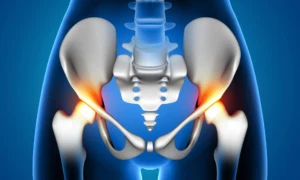Understanding the intricate mechanisms behind erectile dysfunction (ED) is crucial in deciphering the main cause of weak erections. Affecting millions of men worldwide, ED refers to the consistent inability to achieve or maintain an erection sufficient for satisfactory sexual performance. While it’s a multifaceted issue, several primary factors contribute to weak erections.
Physical Health Conditions:
#causesofweakerection
Underlying health conditions often play a pivotal role in causing weak erections. Cardiovascular diseases such as atherosclerosis, hypertension, and high cholesterol can impede blood flow to the penis, hindering the ability to achieve a firm erection. Additionally, conditions like diabetes, obesity, and metabolic syndrome can damage nerves and blood vessels, exacerbating erectile dysfunction.
Psychological Factors:
The mind-body connection is profound, and psychological factors can significantly impact erectile function. Stress, anxiety, depression, and relationship conflicts can disrupt the brain’s ability to signal arousal, leading to weak erections. Performance anxiety, in particular, can create a vicious cycle of apprehension and erectile dysfunction, further exacerbating the issue.
Lifestyle Choices:
Unhealthy lifestyle habits can contribute to weak erections. Smoking, excessive alcohol consumption, and substance abuse can impair blood flow and nerve function, hindering erectile function. Sedentary behavior and lack of physical activity contribute to obesity and cardiovascular problems, further compounding the issue.
Medications:
Certain medications have side effects that can interfere with erectile function. Antidepressants, antihypertensives, antipsychotics, and medications for prostate conditions can all impact sexual performance. It’s essential for individuals experiencing ED to consult with their healthcare provider to explore alternative medications or treatments.
Hormonal Imbalances:
Testosterone plays a crucial role in male sexual function, and imbalances can lead to weak erections. Low testosterone levels, often associated with aging, can reduce libido and impair erectile function. Additionally, conditions such as hypothyroidism or hyperthyroidism can disrupt hormonal balance and contribute to ED.
Neurological Disorders:
Neurological conditions such as multiple sclerosis, Parkinson’s disease, and spinal cord injuries can interfere with the transmission of nerve signals between the brain and the penis, resulting in weak erections. Damage to the nerves responsible for triggering arousal and maintaining penile rigidity can lead to erectile dysfunction.
Poor Blood Circulation:
Adequate blood flow is essential for achieving and maintaining an erection. Any condition that impedes blood circulation, such as peripheral artery disease or venous leak, can contribute to weak erections. Smoking, high cholesterol, and hypertension can also damage blood vessels, further exacerbating the issue.
Sleep Disorders:
Quality sleep is essential for overall health, including sexual function. Conditions like obstructive sleep apnea, characterized by interrupted breathing during sleep, can lead to fatigue, decreased libido, and weak erections. Addressing sleep disorders through lifestyle changes or medical interventions can improve erectile function.
Age-related Changes:
As men age, they may experience physiological changes that affect sexual function. Reduced blood flow, decreased sensitivity, and alterations in hormone levels can all contribute to weaker erections. While aging itself is not the cause of ED, it can exacerbate underlying health conditions that contribute to erectile dysfunction.
Psychosocial Factors:
Sociocultural influences and personal beliefs about sexuality can impact erectile function. Shame, guilt, or cultural stigmas surrounding sex may create psychological barriers that interfere with arousal and performance. Addressing these psychosocial factors through therapy or counseling can help improve sexual confidence and erectile function.
In conclusion, the main cause of weak erections is often multifactorial, involving a complex interplay of physical, psychological, and lifestyle factors. While addressing one specific cause may improve erectile function, a comprehensive approach that considers all contributing factors is typically necessary for effective treatment. Seeking guidance from healthcare professionals and making lifestyle modifications are essential steps toward overcoming erectile dysfunction and reclaiming sexual vitality.







































